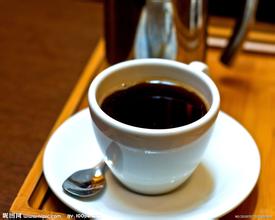Introduction of boutique coffee from El Mercedes Manor Coffee Variety producing area with balanced Taste
The National Assembly of El Salvador has a unicameral system, with a total of 84 members, 64 of whom are based on the population of each province.
San Salvador
San Salvador
Proportional distribution, the remaining 20 regardless of provincial origin, according to the number of votes to determine the term of office of 3 years, can be re-elected. The latest parliament was established in May 2015 and its term of office lasts until April 2018, including 35 seats for the nationalist Republican Union, 31 seats for the Marty Front, 11 seats for the Grand Alliance of National Unity, 4 seats for the National Reconciliation Party and 3 seats for other parties. Lorena Pena (LorenaPe ñ a), Speaker of the Marty Front, served until 7 November 2016, followed by Guillermo Gallegos, a member of the Grand Union of National Unity, who replaced him as Speaker until April 2018. The latest government of El Salvador was formed in June 2014. The main cabinet members are Vice President Oscar Ortiz (Oscar Ortiz), Foreign Minister Hugo Roger Mart í nez Bonillia, Finance Minister Carlos C á ceres, economy Minister Tharsis Salom ó n L ó pez, Defense Minister David Mungui í a Pay é s. Sandra Eddiwell Guevara Perez, Minister of Labour and Social Security (female, Sandra Edibel Guevara P é rez), Minister of Agriculture Orestes Autes (Orestes Ortez), Minister of Public Health Violeta Menshiwar (female, Violeta Menj í var), Minister of Public works, Transport, Housing and Urban Development Gerson Mart í nez, Minister of Environment and Natural Resources Lina Lina Pohl Tourism Minister Jose Napole ó n Duarte
El Salvador (ElSalvador) is one of the small countries in Central America, where coffee is light, fragrant, pure, slightly sour and characterized by excellent balance of flavor. It is a specialty of Central America. With sour, bitter, sweet and other taste characteristics, the best baking degree is moderate, deep.
Salvadoran Coffee-Coffee Origin
In the early 1990s, guerrilla warfare greatly damaged the country's national economy, reducing coffee production from 3.5 million bags in the early 1970s to 2.5 million bags in 1990-1991. The eastern part of the country was most affected by guerrilla warfare, and many farmers and workers were forced to leave the manor. The shortage of funds has led to a sharp drop in coffee production, from 1200 kg per hectare in the past to less than 900kg per hectare today.
In addition, the government imposed an additional 15% tariff on exported coffee in 1986, that is, an additional 15% in addition to the existing 30% tax. Taxes, together with unfavorable exchange rates, have greatly reduced the export of coffee and the quality of coffee.
The government finally realized the great role of coffee in the national economy, such as solving employment, earning foreign exchange and developing agricultural production, so it privatized some coffee export industries in 1990, hoping to increase the income rate of coffee in the export market.
Today, this coffee accounts for 40% of the country's exports. The best quality coffee is exported from January to March, and 35% of the extra hard beans are exported to Germany.
Salvadoran coffee.-Salvadoran coffee.
Flavor: balanced taste and good texture
Recommended baking method: moderate to deep, with a variety of uses
Top quality beans: El Salvador SHB
Taste characteristics: sour, bitter, sweet mild and moderate

Important Notice :
前街咖啡 FrontStreet Coffee has moved to new addredd:
FrontStreet Coffee Address: 315,Donghua East Road,GuangZhou
Tel:020 38364473
- Prev

Introduction to the fragrant and delicious coffee of Nicaragua Los Congo Manor Coffee
High-quality Nicaraguan coffee, grown in the north and middle of the country. Coffee is a pillar industry in Nicaragua, producing nearly 100,000 tons of coffee beans every year. Many people who have tasted Nicaraguan coffee usually think that it is no different from Salvadoran coffee or Honduran coffee. It is full-bodied, smooth and delicate, with a slightly bitter finish, like a faint taste in a wine. In
- Next

Introduction to the taste description of the mild and delicious coffee varieties in Nicaragua's Tianyi Manor.
People of mixed Indo-European race account for 69% of the Gagua population. The official language is Spanish. Most of the residents are Catholic. In 1522, Spain began to colonize Nicaragua. On September 15, 1821, Nicaragua got rid of the Spanish colonial shackles and declared its independence. From 1822 to 1823, Nicaragua joined the Mexican Empire. In 1839, Nicaragua established a republic. Niagara
Related
- Does Rose Summer choose Blue, Green or Red? Detailed explanation of Rose Summer Coffee plots and Classification in Panamanian Jade Manor
- What is the difference between the origin, producing area, processing plant, cooperative and manor of coffee beans?
- How fine does the espresso powder fit? how to grind the espresso?
- Sca coffee roasting degree color card coffee roasting degree 8 roasting color values what do you mean?
- The practice of lattes: how to make lattes at home
- Introduction to Indonesian Fine Coffee beans-- Java Coffee producing area of Indonesian Arabica Coffee
- How much will the flavor of light and medium roasted rose summer be expressed? What baking level is rose summer suitable for?
- Introduction to the characteristics of washing, sun-drying or wet-planing coffee commonly used in Mantenin, Indonesia
- Price characteristics of Arabica Coffee Bean Starbucks introduction to Manning Coffee Bean Taste producing area Variety Manor
- What is the authentic Yega flavor? What are the flavor characteristics of the really excellent Yejasuffi coffee beans?

